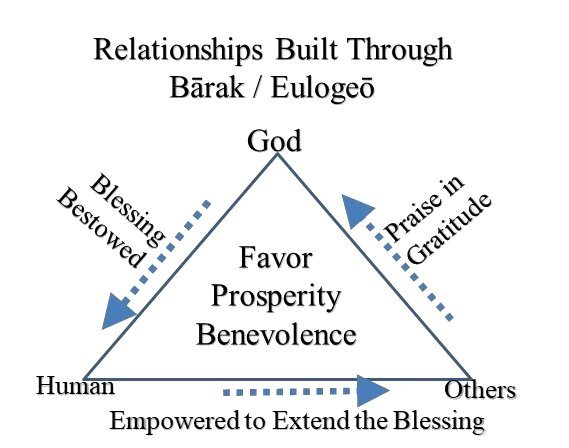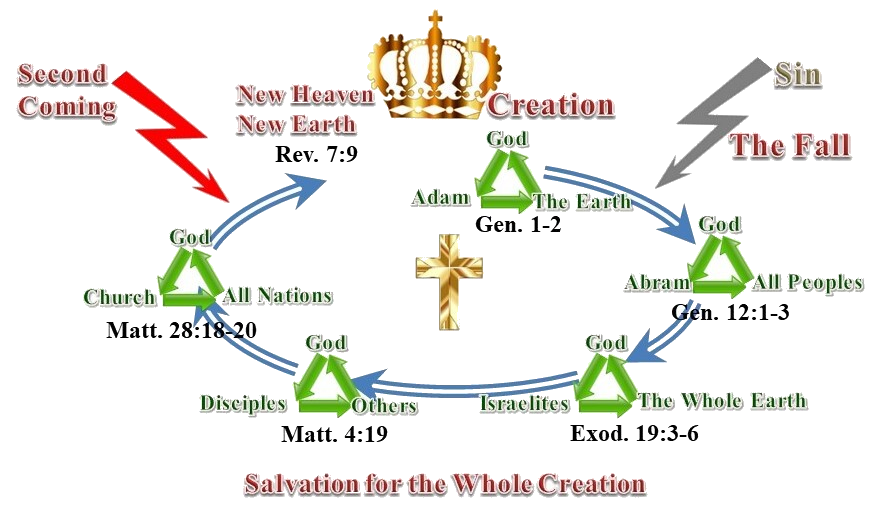Uncertainties Amid Deeper Integration
Since I wrote in November last year about the coming new normal in Hong Kong, further critical transition has been taking place. The director of Beijing’s Liaison Office in Hong Kong, Luo Huining, has pushed the local government further into deeper integration with the mainland.1 Actions are taking place to merge the economic lifeline of Hong Kong into the motherland. Further systemic changes are expected. This has caused Christians concern about the possible “deeper integration” of religious policies between the two systems.
I suggest preparing for the worst while holding on to the hope of the Bible.
At the time of Judah’s tragic downfall, Jeremiah wrote to the exiled Jews who were captured when Babylon invaded and took control of Jerusalem and he announced the Lord’s plan for a prosperous future beyond the imagination of the subjugated refugees (Jeremiah 29:11). Deportation was not the endgame as the Lord would cause a righteous Branch of David to spring forth. Through his messianic deliverance, Jerusalem would thrive again (Jeremiah 33:14-16).
Jeremiah’s message ignites hope in us; God cares about his people no matter what crisis we face. If we understand God’s overall plan, uncertainties will not overwhelm us. Biblical theology helps us look beyond our limited eyesight and provides an overview of the whole of Scripture written as a unified revelation of God’s gracious plan of redemption. The 66 books collectively and consistently portray the progressive unfolding of God’s mission, rooted in history, and revealed along the redemptive-historical plotline primarily demarcated by the biblical covenants.2 Accordingly, theologians have unearthed various themes such as God’s sovereignty, his unfailing promises, the heavenly kingdom, etc.3 Such an overarching thematic storyline guides us to reshape our worldview in dealing with present uncertainties.4
The Hope in Blessing
Given the systemic socio-political and economic changes in Hong Kong, the blessing motif derived from a biblical-theological perspective5 sheds a new ray of hope for us to prepare for the coming challenges. Before sketching a broad stroke storyline of blessing, reviewing the words carrying the meaning of blessing in the Bible enriches our understanding in their contexts:
| Blessing in the Bible | Meaning and Connotation |
| Hebrew: bārak Greek: eulogeō | • To bless, praise, salute • An invocation for God’s blessing • Special favor from God resulting in prosperity and success • The greater blessing the lesser, e.g., Melchizedek blessing Abraham (Hebrews 7:6-7)6 |
| Hebrew: ashrê Greek: makarios | • The state of prosperity, good luck, happiness, flourishing due to living wisely • True happiness within the gracious covenant God has given7 |
To summarize, ʾashrê / makarios stresses a state of happiness, while bārak / eulogeō, though not excluding such a state, speaks more of being empowered or favored as the recipient of blessing from the Lord. Thus, bārak / eulogeō connotes power bestowed from God and such endowment empowers the blessed to fulfill their destiny8 whereas ʾashrê / makarios carries a more secular sense.9 Out of 600 times of expressing blessing in the Scriptures, bārak and eulogeō are used the most because the centrality of blessing is related to building up Shalom in our relationship with God and others so that we flourish through fulfilling God’s will.10

The above diagram describes how bārak / eulogeō works. This pattern appears repeatedly in redemption history along with the storyline as shown in the next diagram.
The Bible Storyline
The triangular pattern is first presented in the garden of Eden where God blessed Adam with holistic wellbeing. God commissioned Adam to extend the blessings so that the whole earth would reflect God’s glory (Genesis 1-2).

Regretfully, Adam’s transgression brought sin into the world. God initiated a redemption plan in which he invited humans to work together with him to fulfill his mission. God called Abraham to leave his hometown in good faith to go to an appointed land where God promised to bless his family to become a great nation. God would bless those Abraham blessed and all peoples on earth would be blessed through him (Genesis 12:1-3).
As history unfolded, God called Moses to lead his people out of slavery in Egypt. God reiterated his redemption plan by binding himself to a covenant with the Israelites who would become God’s treasured people on earth. Consequently, a priestly kingdom was built with a mission to attract all other nations to come to the Lord (Exodus 19:3-6). They lived under God’s divine offer to choose life or death, blessings, or curses (Lev. 26; Deut. 28; Deut. 30: 19).
Sadly, the Israelites eventually failed to live up to God’s expectation. Evil became so rampant that God exiled them from the Promised Land after a long period of prophetic warnings. But God never abandoned his people. He renewed his covenant and sent his son, Jesus, to live among us. Jesus called disciples to follow him and sent them out to “fish” for people so that God’s blessing would spread throughout the land (Matthew 4:19).
Jesus completed the salvation plan through his death on the cross and subsequent victorious resurrection. Before his ascension, he commissioned his disciples to go and make disciples of all nations, baptizing them, and teaching them to become disciples. He even promised to be with us to the very end of the age (Matthew 28: 19-28).
We wait expectantly for the day when multitudes of disciples from every tribe and nation will stand before the Lamb as Christ makes them a priestly kingdom to serve God, and they will reign forever (Revelation 5:9-10, 22:5).
Turning the Uncertainties of Change into a Question
From this overview, we have come to know God’s mission to restore the blessing in Eden for all of his children. The plotline, encompassed with blessing, continues to be revealed. Ultimately, the zeal of the Lord will accomplish his mission. Although the churches may find increasing restrictions on preaching in the future, God’s sovereignty is still in force. Socio-political and economic changes can be used by God as instruments to advance his mission.
With this perspective, we now turn to ask, “How should we work with God to make the integration of Hong Kong and the mainland an arena for greater blessing and extension beyond to others?” We will explore that question further in my next article about integrating blessing in the Bible with blessing in Chinese culture.
Endnotes
- Tony Cheung, “Envoy Pledges Closer Integration,” South China Morning Post, Jan. 13, 2020.
- Stephen J. Wellum, “Editorial: Reflections on The Significance of Biblical Theology,” Southern Baptist Journal of Theology, SBJT 20:1 (Spring 2016).
- Yee-cheung Wong, Old Testament Theology: From Introduction to Mythology, (Hong Kong: Tien Dao Publishing House, 2015), 88.
- Peter J. Gentry, “The Significance of Covenants in Biblical Theology,” Southern Baptist Journal of Theology, SBJT 20:1 (Spring 2016), 18.
- Po Kin Chung, A Case Study in the Application of the Blessing Motif to an Urbanizing County in South China, Doctoral Dissertation in Bethel Bible Seminary, 2018, 35-44.
- William E. Brown, Baker’s Evangelical Dictionary of Biblical Theology, edited by Walter A. Elwell, (MI: Baker Book, 1996), downloaded on 1 December 2020, from https://www.biblestudytools.com/dictionary/blessing/.
- Jonathan T. Pennington, “A Biblical Theology of Human Flourishing”, in Institute for Faith, Work and Economics, 2015, downloaded on 1 December 2020, from https://tifwe.org/resource/a-biblical-theology-of-human-flourishing-2/.
- Gallagher, Sarita and Hawthorne, Steven C., Blessing as Transformation, Faculty Publications— College of Christian Studies, 225, 2009, 34-35.
- Irina Skulkina, Blessing and Curse in the Old Testament: Socio-Cultural Aspects, Master Thesis in Faculty of Philosophy and Theology, Ukrainian Catholic University, 2013, 22.
- Po Kin Chung, A Case Study in the Application of the Blessing Motif to an Urbanizing County in South China, 56.
- 叔紀田, 福境重尋:延福萬族的聖經基礎, (香港:大使命中心,2012), 159.
Image credit: Tim Durgan on Unsplash.
JI Yajie
JI Yajie (pseudonym) has worked with an NGO in China for more than a decade and has the desire to bring the gospel holistically to unreached people in creative access countries.View Full Bio
Are you enjoying a cup of good coffee or fragrant tea while reading the latest ChinaSource post? Consider donating the cost of that “cuppa” to support our content so we can continue to serve you with the latest on Christianity in China.